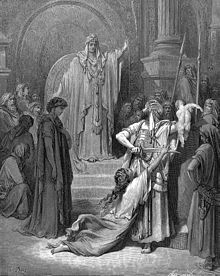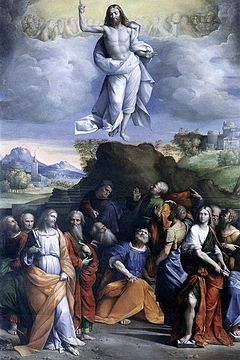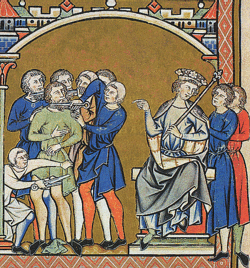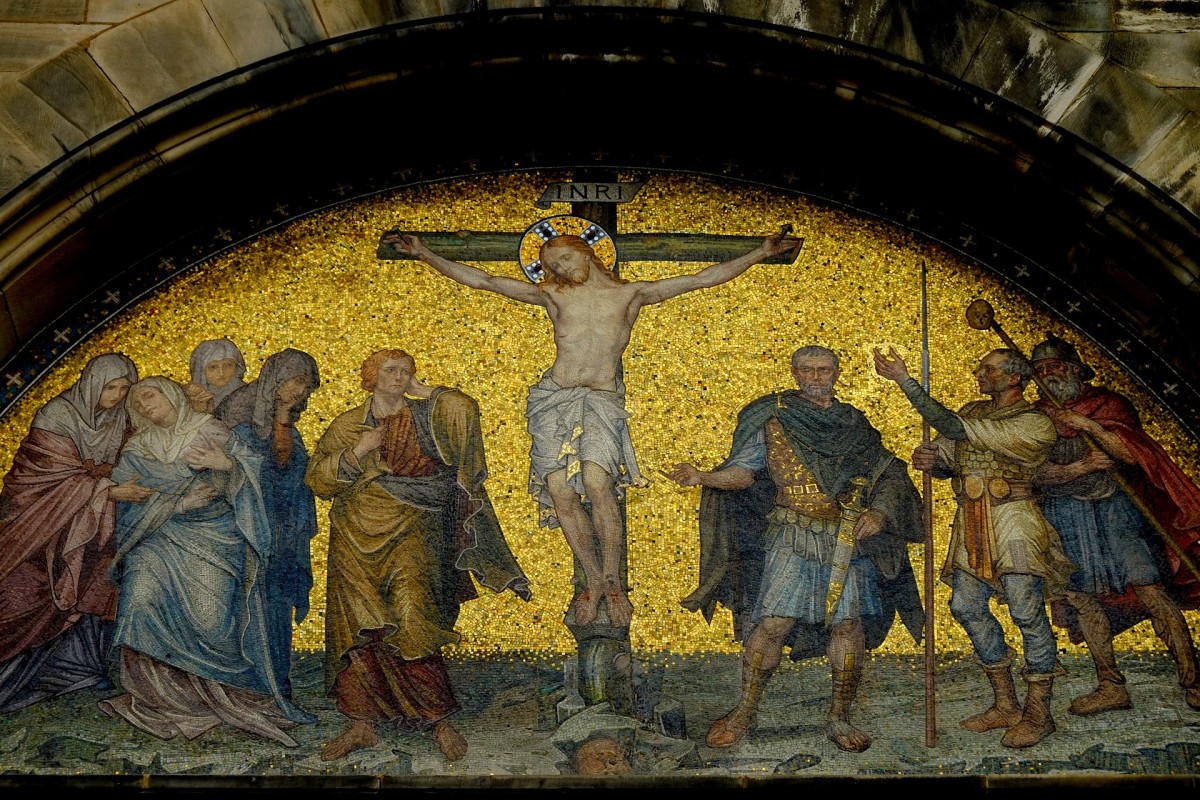Bible: What Does 2 Samuel 7-10 Teach Us About the Davidic Covenant?
Nathan and David

Solomon

The First Temple
view quiz statisticsThe Ascension of Christ

The Davidic Covenant
Secure in the comfort of his cedar home, David considers building a similar structure for the ark.
When he asks the advice of Nathan, the prophet/counselor sees no problem with the king's godly desire (vv. 1-3).
That night, however, Yahweh reveals His will to the seer; it proves to be the opposite of what Nathan had told David.
[How often God overrules the good intentions of His people!]
The LORD never asked any judge or king to build Him a house; He was content to dwell among men in a tent and a tabernacle (vv. 4-7; cf. John 1:14).
God, on the other hand, promises to make a "house" for David, the shepherd whom He had transformed into a great warrior and king (vv. 8-9, 11b).
In addition, the LORD announces His plan to give Israel a permanent and safe homeland (vv. 10-11a).
Furthermore, Nathan's vision discloses God's intention to establish the kingdom of David's "seed" (i.e., Solomon) [vv. 12, 17].
This descendant, not David, will build a house (temple) for God (v. 13a). In addition, the LORD will cause this "throne" to endure forever (v. 13b).
[It is very important to define what God meant by "throne" and "forever."
Undoubtedly, the terms point forward to the age when Christ, as the ultimate fulfillment of this promise, will reign as King on the Earth for a thousand years and then on into eternity.
While Solomon, David’s immediate son, will build a physical temple for the LORD, Jesus, David’s divine Son, will construct a spiritual temple through His Spirit.]
The Father will sustain a close covenant relationship with this son, for He will not forbear from chastening him (v. 14).
[This verse can only be speaking about Solomon].
Mercy will protect this ruler from complete rejection (v. 15), and Yahweh will establish David's house, kingdom, and throne forever (v. 16).
King David's prayer of thanksgiving is classic (vv. 18-29).
Overwhelmed by God's grace, he confesses his sense of unworthiness before the LORD (v. 18; cf. other great believers' perspective [Exodus 3:11; Judges 6:15; Ruth 2:10]).
David also expresses his difficulty with the concept of the eternality of his 'house', and seems to be asking for more light on the subject (v. 19).
Yet he rests assured that God knows how he fits into the plan, and that He has done everything for His own sake (vv. 20-21).
"Adonai Yahweh is great," he exclaims; “His redeemed people, Israel, is unique among men, for He has established an everlasting covenant with them" (vv. 22-24).
Finally, David shows his ardent desire that God accomplish what He has promised, so that He might magnify His name (vv. 25-26).
He stands upon the LORD's word of truth concerning his house and relies on His goodness to bless it forever (vv. 27-29).
John MacArthur
2 Samuel 8
The author then lists a series of David's military victories against various enemies:
(1) Philistines (v. 1);
(2) Moab (v. 2)
[Was this ''measurement'' (v. 2) an act of mercy?];
(3) Hadadezer, a Syrian king, from whom he takes chariots, horsemen, soldiers, and horses (vv. 3, 4; cf. Deut. 17:16 regarding the number of horses);
(4) Damascus Syrians who come to help Hadadezer, twenty-two thousand of which lose their lives (v. 5);
(5) other Syrian cities (v. 8); and
(6) Syrians in the Valley of Salt, Edom (vv. 13-14).
Whenever David completely subjugates a people, he sets up a garrison in their city, and exacts tribute or confiscates valuable items from them (vv. 6-8, 14).
He even received gifts from a certain Toi, whose enemy (namely, Hadadezer) David had just discomfited (vv. 9-10).
All of these monies the king dedicates to Yahweh (vv. 11-12); in every one of his victories "the LORD preserved David wherever he went" (vv. 6, 14).
As his power grows, so do the officials in his administration. The most influential in his cabinet the author lists in verses 16-19.
Mephibosheth

2 Samuel 9
While David reigns in Jerusalem, his thoughts turn to Jonathan, his late covenant brother.
Wishing to show kindness to someone from his friend's house, the king inquires of Ziba, a servant of Saul (vv. 1-2).
Ziba names Jonathan's lame son Mephibosheth, who lived in Lo Debar, as a survivor (vv. 3-4, 13).
When Mephibosheth appears before David's throne, he prostrates himself in fear.
The king relieves his anxieties, however, and grants Jonathan's son the claim to Saul's land and free board at David's table (vv. 5-7).
Mephibosheth responds as a humble, grateful servant should (v. 8).
David informs Ziba that he and his sons should farm Saul's land for Mephibosheth (vv. 9-10a); the latter would always eat with the king, just as if he were one of his sons (v. 10b, 11b, 13a).
Ziba initially obeys David's command (v. 11a) and serves Mephibosheth (v. 12b).
Hanun

Syrian King
view quiz statistics2 Samuel 10
The king again desires to show kindness on behalf of a deceased friend, but the arrangement does not work so well for him this time (vv. 1-5; cf. 2 Sam. 9:1).
David sends comforters to Hanun, the son of his friend Nahash who had just died.
Believing them to be spies, the suspicious Ammonite princes (under Hanun) humiliate these messengers, Near Eastern-style (vv. 2-4).
After David privately commiserates with his returning servants, he permits them to recoup their dignity by allowing them to grow their beards back, in Jericho (v. 5).
Thinking rightly that David would not let such disrespect go unrequited, the Ammonites hire thirty-three thousand soldiers from various Syrian friends.
This hostile action moves Israel to muster its army in turn (vv. 6-7).
In one particular battle, General Joab finds himself trapped between Ammonites on one front and Syrians on the other (vv. 8-9a).
He splits his forces in order to battle both enemies at once, sending Abishai against Ammon while charging some elite guards to attack Syria (vv. 9b-10).
To achieve victory, Joab relies on teamwork, courage, and the LORD (vv. 11-12).
Apparently, he does not need to employ this strategy fully, for both foes retreat (vv. 13-14).
Afterwards, Hadadezer assembles a host of Syrian troops at Helam, where David gathers his army to battle them (vv. 15-17).
Israel wins a mighty victory, massacring thousands of enemy horsemen including Syria's general Shobach (v. 18).
As a result, Hadadezer's servants sue for peace with David, and they no longer trust the Ammonites (v. 19).
© 2013 glynch1









